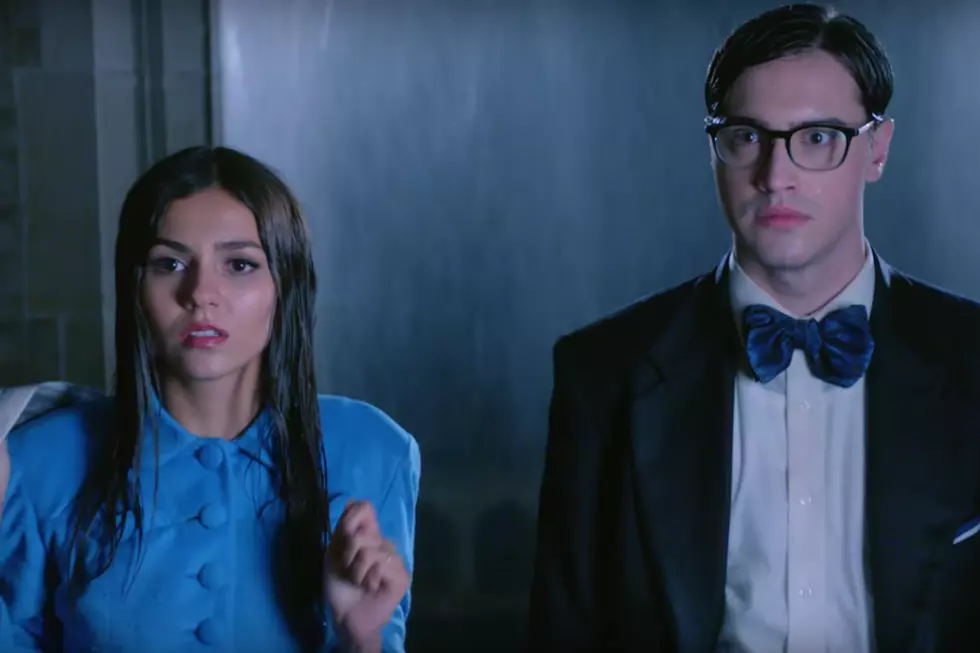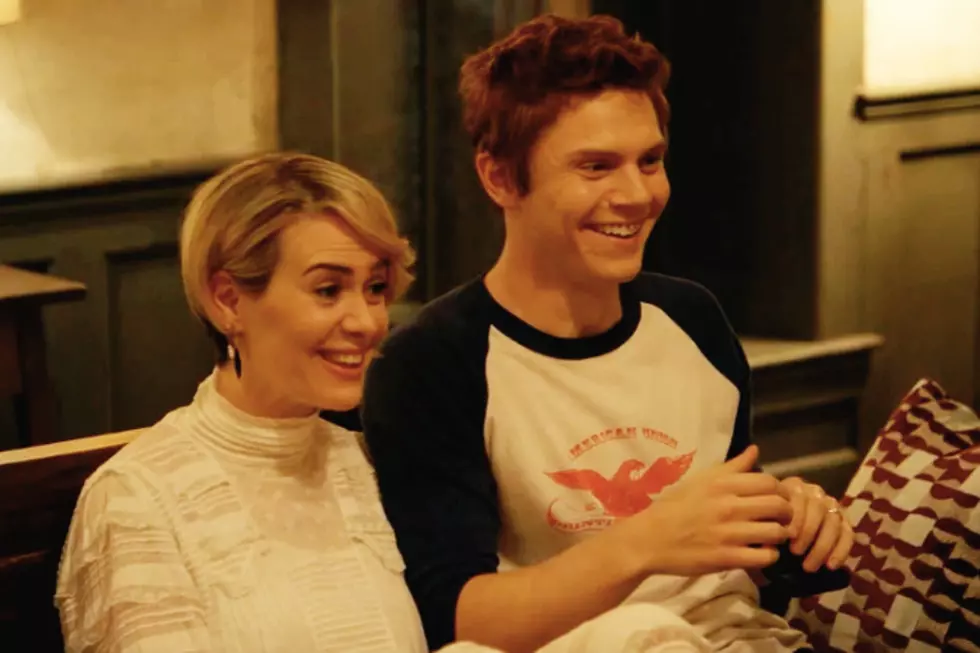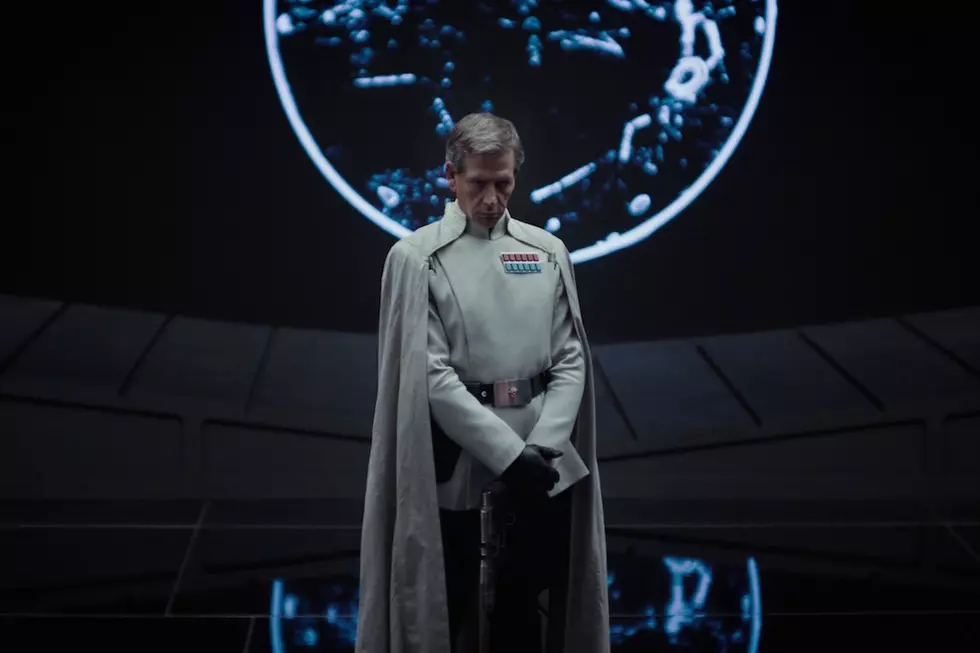
Ed Zwick on ‘Jack Reacher: Never Go Back,’ Tom Cruise, and His Movie’s Unexpected Timeliness
The first thing I think of when I hear the name Edward Zwick is his Oscar-winning 1989 film Glory. Specifically, I think of the time my entire 7th grade class was assembled in Marlboro Middle School’s amphitheater to watch it. And when the same thing happened again in 8th grade. And then again in high school, where I was shown Glory two more times in history classes. My colleagues on the ScreenCrush staff all have similar stories. For my certain generation of American school kids, Glory was like a rite of passage.
“Wow, I found my way into the curriculum,” Zwick chuckled when I told him that story earlier this week at the New York offices of Paramount Pictures. We were meeting to discuss his latest film, Jack Reacher: Never Go Back. It will probably not get as much play in public schools as Glory. This is a serious loss for the children of America.
The film is the sequel to the 2012 thriller, adapted from a long-running series of novels by Lee Child, starring Tom Cruise as the former military policeman who wanders the country righting wrongs. In Never Go Back, Reacher pays a visit to his replacement as the head of the 110th Military Police, Major Susan Turner (Cobie Smulders) only to discover she’s been thrown in jail and framed for espionage. In short order, Reacher busts Turner out of prison and then the pair go on the run with a teenage girl named Samantha (Danika Yarosh), who has a surprising connection to our hero.
For Zwick, Jack Reacher offered the opportunity re-team with Cruise (after 2003’s The Last Samurai) and to try his hand at the detective genre, something he’d never done before in a 30-year career that’s already included war films (Courage Under Fire), biopics (Pawn Sacrifice), historical dramas (Legends of the Fall), and romances (Love & Other Drugs). I was Zwick’s last interview of the day before he headed to London for Never Go Back’s British premiere, and was fortunate to get a few extra minutes of his time. The result was one of the most enjoyable conversations I’ve ever had with a filmmaker, as we talked about Never Go Back, working with Cruise, and the evolution of the modern movie business.
There are so many Jack Reacher novels. How do you pick which book to adapt?
I have to cop a plea there because Tom [Cruise] and [producer] Don Granger and [Jack Reacher author] Lee [Child] had already put their heads together before they called me. And they said “Would you read this book?” So I know why, but I wasn’t in that seminal moment.
The why is that the character Susan Turner is a great alter ego to Jack Reacher and an opportunity to put him in a very different situation. And the character of Samantha; the idea of the fraternity suit is in the book [of Never Go Back] but actually much less central. He hears about the suit and meets her in the very beginning of the book and then at the very end of the book he confronts her again. What [co-writer] Marshall [Herskovitz] and I chose to do is to marble her through the story and make her, if you will, one of the spines. And with her and the character of Turner, they would comprise this surrogate family. I thought that was a source of great comedy and scenes that would also enhance the jeopardy and the stakes of the story. So that was the contribution, conceptually, that we then made to their decision that had already been made.
The Turner character has that powerful and weirdly timely scene where she’s talking to Reacher about how hard it’s been for her in the military. I think she even says she’s had to deal with colleagues “pawing” at her?
How interesting is it right now to think that we’re presenting these strong female characters at a moment in which that has become the currency of our political narrative? We couldn’t have expected it, but sometimes these things happen.
What was the genesis of that moment, and what are you thinking now as suddenly the issues you raised in your action thriller are central to the Presidential election?
First of all, I made a movie a while ago called Courage Under Fire. I met a lot of women in the military with Meg Ryan and they were remarkably impressive: Competent and strong and not versions of men, but versions of women. And they had stories to tell about how difficult it had been for them.
The issue of assault in the military is something that they’ve gone to great lengths to try to deal with — and have not entirely dealt with yet. The military has been actually remarkable at dealing with race, but gender is an issue. So that was in my head. It was in my head when we were writing. And I knew what the nature of their experience had been. I just thought that we wanted this movie to have a certain authenticity, whether it’s in the action or the characters and that if we were going to look more deeply at the Jack Reacher character, we also wanted to have those other people around him have some nuance and dimension as well.
And now the movie is coming out —
— on Friday in the midst of this whole notion of sexual assault.
The language in your action movie is not as frank as the language in politics. That’s almost crazy.
That’s nuts. That’s just nuts. And by the way, this is just an aside, the degradation of political discourse is one of the worst casualties of this election.
You worked with Tom Cruise about a dozen years ago on The Last Samurai. Has anything changed for the both of you and your process between then and now?
What changed is that he’s gotten older and I’ve gotten older and we’ve maybe got different experiences that reflect how we look at life. His process is every bit as intense and meticulous and passionate and as joyful as it’s ever been. You’ve heard that a dozen times and every director will say that, but it’s true. I think that his willingness to show some of the vulnerabilities that we show in the character maybe is a legacy of that.
Yeah in this film, Jack Reacher, he’s still tough whenever he’s in public, but when he is in his motel room, he’s always groaning or limping. I liked that touch.
Yeah, because we wanted to show in this movie that when you get hit, it hurts. I just wanted to have this scale at a certain human level. We talked a lot about movies we have loved, like Bullitt and French Connection and Three Days of the Condor, where the humanity of the characters and the character drama was as important as the action. Obviously we want to fulfill the obligations of a genre like this, and I hope we did, but we wanted it to be somewhat organic.
You mentioned Cruise’s intensity, and that’s something people talk about a lot in his action movies. What is something about his work as an actor that you think people don’t appreciate as much as they should?
It’s becoming obvious, I think, if you look at the last three movies he made with Rebecca Ferguson [Mission: Impossible - Rogue Nation], Emily Blunt [Edge of Tomorrow], and now Cobie Smulders, there’s something very Old Hollywood about investing these women with real - not just characters, but generosity of size and import.
That’s true. He’s not really afraid of being upstaged.
In fact, he encourages it. He knows it makes the movie better, and it makes him better. Renee Zellweger, if you go back and look at [Jerry Maguire] - and Nicole [Kidman] when he was with her. Yes, you can talk about the men that’s he’s been in movies with. But it’s very interesting to look at how many women he’s endowed. I think that’s an unexpected sort of consistency.
Glory, Courage Under Fire, The Last Samurai, Defiance, and now Jack Reacher; you’ve made quite a few movies that involve the military — but they're not all war films.
No.
Is there something you find interesting about the military as more of a setting than a genre?
Certainly it’s a really interesting institution. When I first thought about the military — and this goes all the way back to Glory — I learned really quickly that it isn’t a monolith. It is really an institution made up of some people with very different personalities and people of different backgrounds. And the idea of trying to create some homogeneity and conformity in a group like that is fascinating to me. Authority and the uses of authority, and renunciation of authority, and the assumption of authority is endlessly interesting to me. Maybe that’s because I direct movies and I’ve had to learn to try to deal with it myself.
I don’t know if you saw it, there was a supercut that came out just in the last few days of every shot of Tom Cruise running.
Someone told me about this! I had been on a plane and I had been in these interviews, I have not seen it.
Would you care to guess how long it is? Every shot of Tom Cruise running, in over 30 years of films.
I’m gonna guess ... well because it’s on the net, I’ll guess 30 minutes.
18 minutes of running.
18 minutes of running! We had more running we cut out of this movie. We could have done 18 minutes ourselves.
[laughs] This person who made this is obviously not the first to notice that Tom Cruise loves to run in movies. I’m curious because you’re the director of Never Go Back and you’re also a co-writer: Do you go into the writing of the script thinking, “Okay we need to add three places where Tom can run?”
No! In fact, it’s funny you say that because whenever you write, you assume you’re the first person ever to have done it. I think with a movie like this, they’re on the run. So if they’re on the run, you gotta photograph the run.
That’s true. There’s a few good chase and running sequences, but my favorite was the one where they’re running on the tarmac and you’re shooting them from the terminal looking down and the camera’s moving with them.
Yeah, and by the way, I was so happy to be able to have gotten that shot because the terminal I wanted got closed down. That shot could have been longer! I love the idea you’re shooting over the guy who is chasing them and they’re down there. For some reason, it’s just a very pleasing shot, particularly because all of us have had that experience of being on that jetway or walkway.
Maybe not chasing Tom Cruise, but yes.
Maybe not chasing Tom Cruise.
How do you direct Tom Cruise in a running scene?
Actually, the funny thing was Tom Cruise trying to direct Cobie Smulders in a running scene, because he’s f---ing fast!
[laughs] That was my other question: How hard is it for the rest of the cast and the cameraman to keep up with Tom Cruise when he’s running?
It’s really hard, whether you’re on a little electric cart or on an insert car. In fact, it was important to us that [Cobie] be, not just his equal but maybe able to burn him a little bit. And Coby is fast, but he’s really fast. And a lot of times actors have to take a little bit of edge off to make that dolly shot work. But he had to look like he was going full out and yet not go too fast so that she could be rivaling him. So that was maybe some good acting.
It’s not just running fast, there’s an art to the process.
No, and he’s learned to run properly. You see him with those arms.
If you watch the supercut, you’ll see: That signature run with the arms really seemed to come together on Far and Away.
I actually met him for the first time on the set of Far and Away. For a while we talked about Legends of the Fall; he was interested in it and then it didn’t work out. But I saw him running on that set, so maybe I was influenced.
If you could have directed any existing Tom Cruise movie, which would you choose?
Oh, I would have made Jerry Maguire. I really think that his performance in it is wonderful, the movie is great. Cameron [Crowe] is a friend of mine.
He did a pretty good job directing it.
I think he did fine. I wouldn’t say I could do it better! That wasn’t part of your question, I wish I could have done it as well.
You seem to dabble in a lot of different things.
Dabble, thank you. [laughs]
It’s not like I can say, “Okay, I know what the next Ed Zwick movie is going to look like.” What challenges are you still interested in trying?
This was a challenge, I hadn’t done the genre and it was fun. There’s a movie I very much wanted to make that we’re having trouble getting made that’s called The American Can. It’s about New Orleans after Katrina. It’s caught up in all sorts of ... the predictable studio stuff.
I don’t know. I just want it to be something that answers some question in me. Which is to say, if it’s worth two years of my life, might it be worth two hours of someone else’s time? That’s the internal accounting. And is it worth leaving the comforts of home and getting sick and being tired and you are in some godforsaken hotel. I know too much to just do it because I want to work. I want to really understand why I’m doing it.
Do you think there will be another Jack Reacher movie?
Well, I don’t know because I think a lot will be determined probably on Friday when we see: Do people actually want to come out and see this one?
Is that decision made literally after that one day?
Somebody once described the film business to me now as a $100 million dollar startup company that succeeds or fails in an hour. They will know by Friday night. Some things defy expectations or do better or worse than expectations, but their process is so honed now as to predict how a movie will do, at least domestically. They’ll have a sense by midnight New York time how this movie is going to do.
You said you wonder about whether to spend two years of your life, and then the success or failure is basically determined in 12 hours.
I know. It’s a ridiculous equation. When you do television you have a little bit more grace to earn an audience’s interest. Someone told me something very interesting recently: Movies spend all of their money promoting before that weekend. In cable television, they tend to spend all the money after the show has already begun and even in the weeks following, imagining the word of mouth and conversation will begin and people will go back and in fact will prefer to go back when they know they have three, four, five episodes, or even the whole series to gorge. That's actually much more like movies used to be. They used to be sold that way.
Jack Reacher: No Go Back is in theaters now.
More From Mix 97.9 FM










